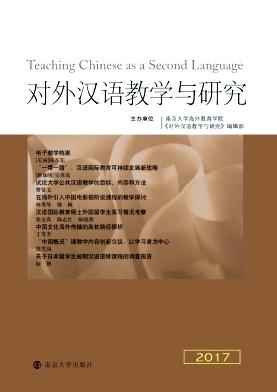Scaffolded Peer Feedback and Second Language Writing Proficiency: Implications for Inclusive ESL Teaching Practice
引用次数: 0
Abstract
Although studies on peer feedback have identified several advantages for second language writing classes, the benefits of peer feedback to low-proficiency students have not been thoroughly investigated. This current study aims to determine how low-proficiency second-language students of English can improve their writing by giving and receiving peer feedback. Utilizing mixed methods, data collection and analyses were primarily conducted through posttest-only control-group design and focus group discussion (FGD). There were twenty university student participants randomly selected from two writing mixed-proficiency level classes. Framed under Vygotsky’s sociocultural theory, an analysis of the gains in writing ability measured from formative and summative writing samples indicated that the low-proficiency students, specifically in the experimental group, made more significant gains in their writing over the course of the semester than the high-proficiency students in both groups. Even though the results generally showed no significant difference, except for higher error avoidance efficiency between experimental and control groups and among the high-proficiency students in both groups, a significant difference was observed between the low-proficiency students in both groups (control group M = 81.6, experimental group M = 89.8, control group SD = 8.3, experimental group SD = 9.5, t(4) = -3.23, p = .032). This leads to the conclusion that low-proficiency students benefit from scaffolded peer feedback.框架式同伴反馈与第二语言写作能力:对包容性ESL教学实践的启示
虽然关于同伴反馈的研究已经确定了第二语言写作课的几个优势,但同伴反馈对低水平学生的好处还没有得到彻底的调查。本研究旨在探讨第二语言英语水平较低的学生如何通过给予和接受同伴反馈来提高写作水平。采用混合方法,主要通过后测对照组设计和焦点小组讨论(FGD)进行数据收集和分析。从两个写作混合水平班随机抽取20名大学生作为研究对象。在维果茨基的社会文化理论框架下,对形成性写作和总结性写作样本的写作能力提高的分析表明,在整个学期的课程中,低水平的学生,特别是实验组的学生,在写作方面比高水平的学生取得了更显著的进步。尽管结果总体上没有显著差异,但除了实验组和对照组之间以及两组高水平学生之间的错误避免效率较高外,两组低水平学生之间存在显著差异(对照组M = 81.6,实验组M = 89.8,对照组SD = 8.3,实验组SD = 9.5, t(4) = -3.23, p = 0.032)。由此得出的结论是,低水平的学生受益于固定的同伴反馈。
本文章由计算机程序翻译,如有差异,请以英文原文为准。
求助全文
约1分钟内获得全文
求助全文

 求助内容:
求助内容: 应助结果提醒方式:
应助结果提醒方式:


